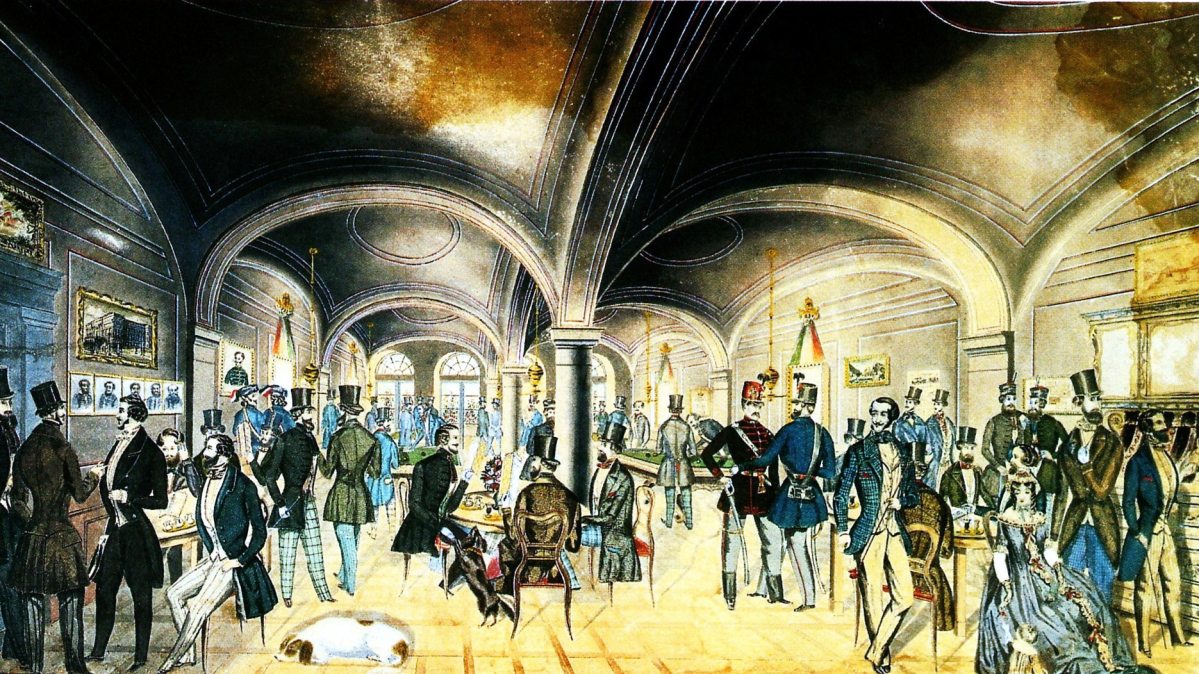
How a café in Budapest sparked change in 1848
At the heart of the 1848 revolution, Pilvax Café fueled the dreams and plans of young revolutionaries ready to change Hungary.
This is the café where a young group of people, the Society of Ten, meets on a daily basis.
initially only with the intention of reforming literature. The youngest member of this group was 19, the oldest was 26. The large, round table in the back corner, the so-called Table of Public Opinion, becomes not their second home but their first. In one of his letters, Petőfi asks his friend and fellow poet János Arany, who lives in the countryside, not to send letters to his lodgings. “If you write,” he tells him, “you would perhaps do better to address your letters to Pillvax Café, where I can get them more easily than I could at home.”
No wonder. As is the case in other major European cities, housing conditions in Pest are terrible. Rents are high, and it is expensive to heat and provide lighting. Wives and children are home for the better part of the day, and there is an unending fugue in three voices: singing, squabbling, and screaming. Things aren’t much better out in the streets. The continuous clip-clop of horses’ hooves on the cobblestone, whips cracking on their backs, goods and materials being carted to stores and workshops, something being hammered together or sedulously erected everywhere, itinerant tradesmen and craftsmen going from building to building, bringing water from the Danube, and kindling, milk, bread, vegetables, people buying and hawking second-hand clothes, rags, plumes, whetting or mending leaky pots, playing the violin or the accordion. They all have one thing in common: they are all bellowing.
There is only one real refuge: the café. Which is not a restaurant, not a cabaret, certainly not a bordello, but for many intellectuals and upstanding citizens (especially merchants) a workplace and information center. For the price of a cup of coffee, you get silence, light, warmth, and, most importantly, all the newspapers and all the latest tidbits of news being passed around by word of mouth. (As Hungarian writer Ferenc Molnár, an incorrigible regular in the coffeehouse world, observed in 1906, “what one café knows at two o’clock they all know by five.” In other words, in Budapest, a city of some 800,000 inhabitants at the turn of the century, news traveled from one end of the capital to the other within three hours. We can be certain it moved just as quickly some fifty years earlier, though obviously there was no internet or television or even radio.)
To discuss, to debate, to hatch plans to save the world, redeem humanity, topple the system… These nests, which are so dangerous for the authorities, are kept under close watch, of course. Thanks to conscientious efforts of the secret police, Emperor Ferdinand himself declares in 1846 that
These young men are eagerly awaiting the St. Joseph Day Fair on the 19th of March to distribute pamphlets among the crowds and collect signatures. They have been formulating the twelve points of their demands for days, and their leader, Petőfi, has written a rousing, even incendiary poem that begins, “On your feet, Hungarian, the homeland calls!” But on the evening of 14 March, a man who has just arrived on the boat from Vienna bursts into the café and shouts into the hubbub and thick pipe smoke.
“Revolution has broken out in Vienna!”
If you want to know more about why intellectuals spent much of their time in cafés and how Pilvax became the center of the Hungarian revolution, click here!